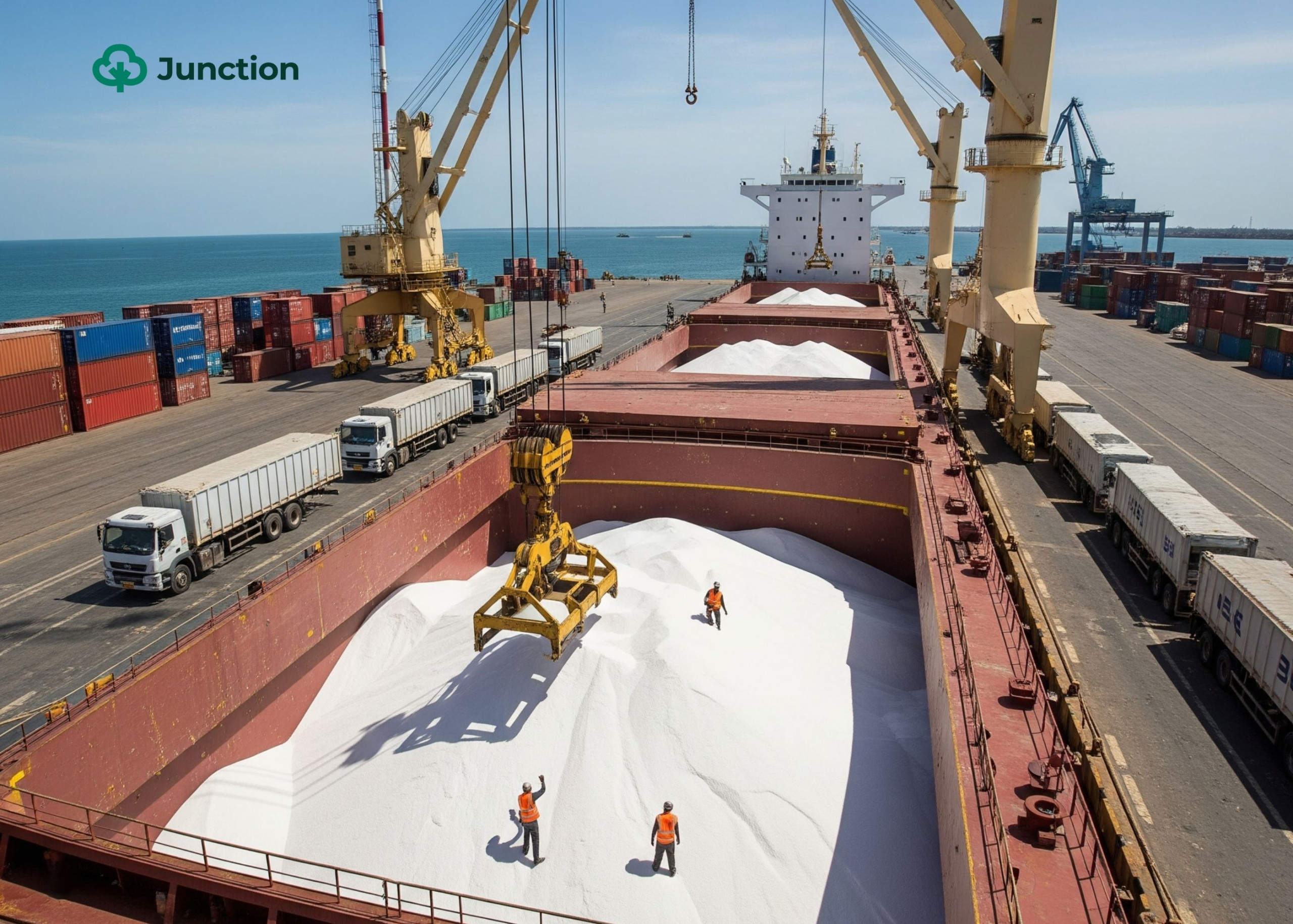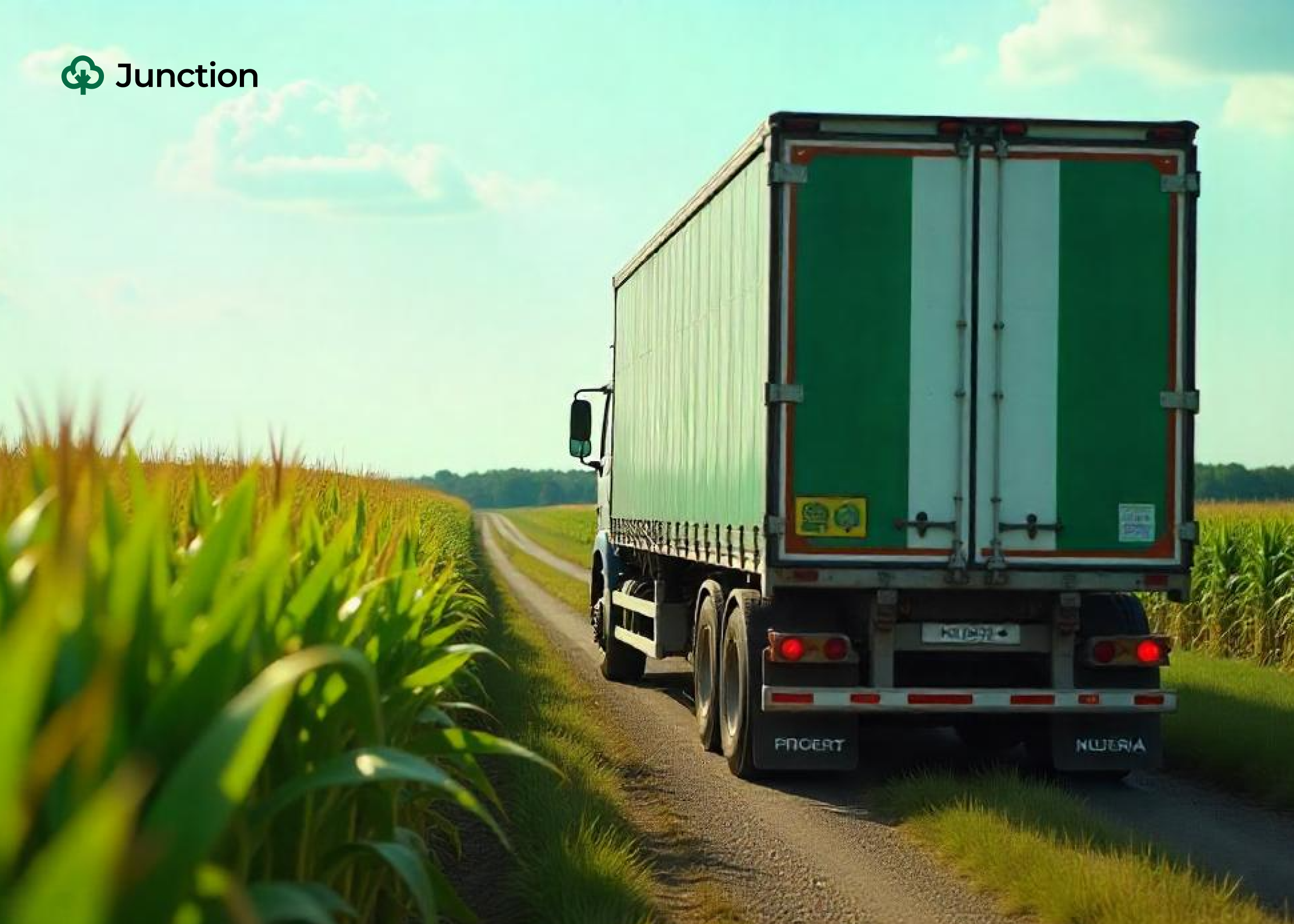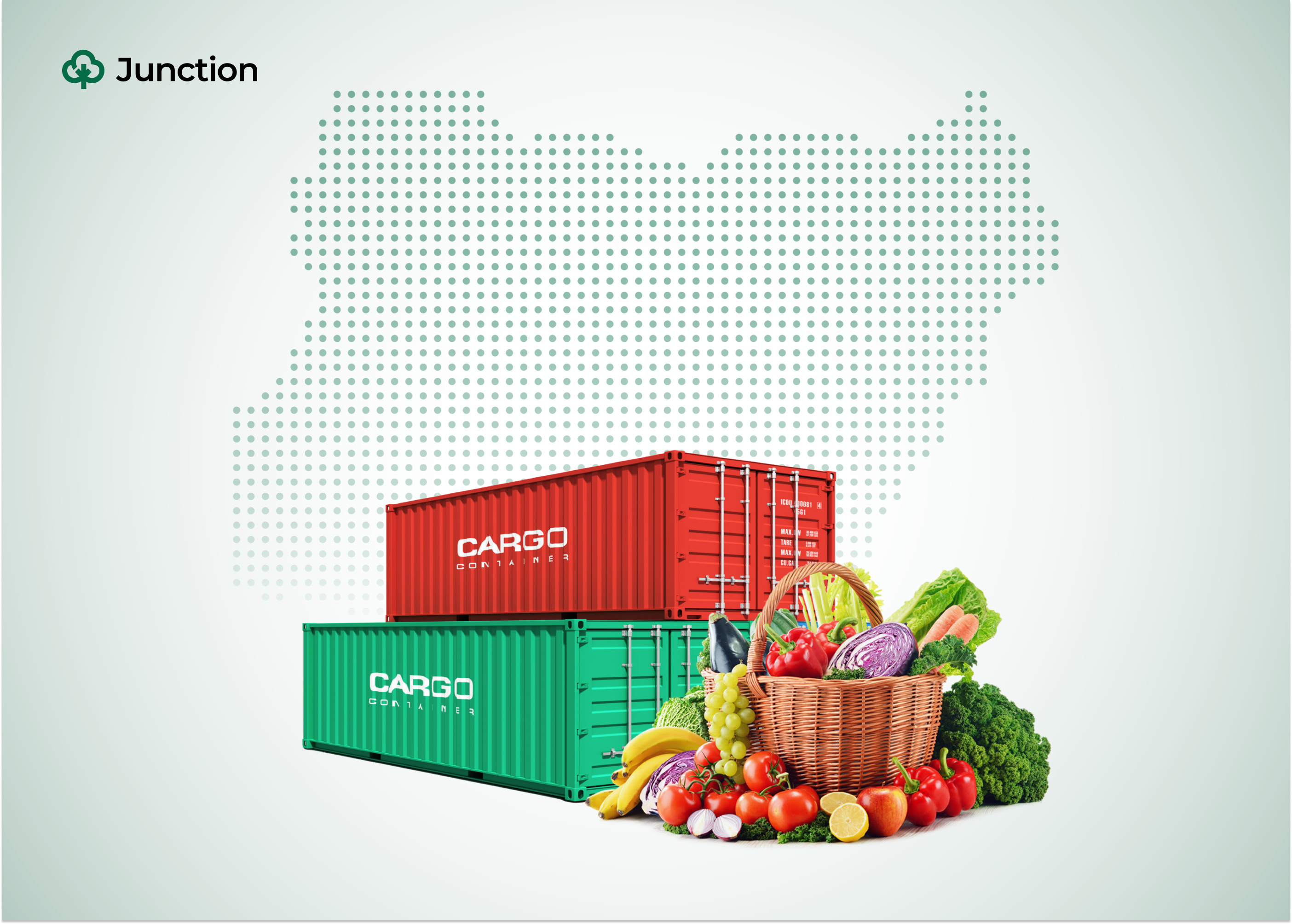Nigeria’s sugar production is still far from being sufficient to cater for its population’s needs. Like other agricultural industries, sugar production in the country still grapples with various challenges, despite the significant potential of the country, keeping it years away from achieving its goal of sugar self-sufficiency.
Nigeria’s sugar self-sufficiency journey (2025 update)
Nigeria’s current annual sugar production stands at a paltry 48,000 metric tonnes, while the consumption rate is approximately 1.8 million metric tonnes, resulting in a deficit of around 1.75 million metric tonnes, which is mostly covered by raw sugar imports from foreign markets. This deficit in local sugar production fuels the growing heavy reliance on imported sugar in the country, and it negatively impacts the price of sugar locally.
Being the second-largest raw sugar importer in Sub-Saharan Africa, and with a very low local sugar production, 96% of the sugar consumed in Nigeria is imported raw from countries like Brazil and India. About 98,000 metric tonnes of raw sugar were imported to the country in March 2025 alone. This imported sugar is then processed by private companies like Dangote Sugar Refinery, Flour Mills of Nigeria and BUA Foods, who are the big players in the Nigerian sugar market.
Raw sugar import is expected to increase by about 11-12% to 1.9 million metric tonnes in 2025/26, a trend experts have warned is detrimental to the local economy and the agriculture value chain.
Government interventions vs challenges
This problem of sugar self-sufficiency has not gone without interventions from the government. There have been dialogues, policies, national plans and investments towards this cause, however, none of them have yielded significant positive results for the sector.
One such intervention was the National Sugar Master Plan (NSMP), a crucial roadmap adopted over a decade ago to develop Nigeria’s sugar value chain. However, its journey has been fraught with obstacles and discouraging results, prompting a renewed focus on strategy and the recent unveiling of the National Sugar Master Plan II (NSMP II).
Again, the revitalised strategy aims to increase local raw sugar production to two million metric tonnes annually. Beyond merely meeting domestic demand, the plan strategically targets value addition through byproducts, including 161 million litres of ethanol, 400 megawatts of electricity, and 1.6 million metric tonnes of animal feed.
There have been intervention funds and investments in backwards integration programmes by public and private entities alike. There is also a joint venture, Savé Sugar Company, between Nigeria and the Benin Republic, currently on the brink due to mismanagement and neglect. It all looks like Nigeria’s effort to boost sugar production, to cut imports and ensure self-sufficiency, is not yielding good results.
A recently signed agreement between Nigeria and a Chinese company, SINOMACH, securing a $1 billion investment for Nigeria’s sugar industry, has sparked hope and conversation again. The foreign investment will bring about a large-scale sugarcane cultivation and processing project, targeting an initial annual processing capacity of 100,000 metric tonnes and a long-term target of one million metric tonnes. This would significantly contribute to the goals of the NSMP II and change the Nigerian Sugar industry if successfully executed.
However, before Nigeria jumps into new investments and the execution of renewed national sugar plans, a deep reflection on what is wrong internally and an exploration of what is working in other African countries’ sugar production industry is necessary to avoid more failure and waste in time, money and other resources.
Sugar self-sufficiency lessons from across Africa
Lessons can be learnt from African countries like Egypt, which recently achieved sugar self-sufficiency and other countries like South Africa, Sudan, and Kenya, which are growing their sugar production industry.
1. Strong government involvement beyond plans and roadmaps
The Nigerian government has already shown positive commitment to its sugar goal with the NSMPs, BIP and foreign investment drive, but there is a need to go beyond the usual drawing of plans and drafting of policies.
Effective implementation through plan execution, compliance enforcement, performance management, accountability and an increase in political will to take necessary actions are needed to avoid another failure of national plans and targets.
Other African nations are sponsoring research and experiments for better sugar crop development, funding outgrower farming programs, boosting infrastructure for farming and eliminating obstacles to the local sugar industry.
Countries like Egypt, Kenya and Tanzania took active control of their sugar industry by not only drawing up plans and setting targets but by actively backing industry activities of public and private enterprises.
2. Diversification of sugar crop and integrated production
Unlike Nigeria, which focuses solely on sugarcane production as the source of sugar, other African countries are diversifying and expanding their sugar production value chain.
Diversifying sugar production sources from only sugar cane to sugar beets and increasing investment in farming were key to Egypt’s achievement of sugar self-sufficiency in 2025. Between 2023 and 2025, Egypt increased land dedicated to sugar beet farming from about 600,000 to over 780,000 feddans, contributing to a record harvest of 2.5 million tons of sugar from beets alone in 2025.
Since Sugar Beets have proven to be a potentially viable alternative for Sugarcane even in Nigeria, as it has been successfully farmed in Niger state, it can also be explored in larger scale. This diversification will reduce reliance on a single crop, eliminate vulnerability to climatic and pest risks and allow for more flexible production cycles.
3. Investment in irrigation and modern farming techniques
Reliance on rain-fed agriculture and the absence of critical infrastructure leaves sugar production in Nigeria vulnerable to the current climate downturn for farmers.
Nigeria can learn from countries like Zambia, South Africa, and Malawi, which have boosted their output by investing in irrigation.
Malawi’s Smallholder Outgrower Sugar Cane Production Project, supported by international financing, has implemented pilot irrigation schemes that have enhanced smallholder farmers’ productivity and sustainability. The Dangote Sugar Refinery in Ghana is also expanding its irrigated farmland to 25,000 hectares, ensuring a consistent water supply and improving yield reliability.
While Nigeria’s NSMP II already recognises the importance of irrigation and modern farming practices in its plans aiming to employ drip irrigation in its sugarcane cultivation, more innovation and climate-smart farming practices need to be ensured for the targets to be realised.
4. Engaging outgrower farmers
Successful sugar industries in Kenya, Mauritius, and South Africa heavily involve local outgrower farmers. This model not only expands production but also creates jobs and fosters community support.
Although NSMP has already factored in outgrowers into its sugarcane fields cultivation, there is a need for stronger implementation frameworks to make it a success. This will include access to finance, extension services, and market guarantees to replicate the success seen in these African counterparts.
For example, Kenya’s sustainable sugarcane farming guide supports outgrowers throughout the farming cycle, improving yields and quality, while South Africa’s sugar industry integrates outgrowers into its value chain through cooperative models and contract farming.
5. Exploring value-added products
Diversifying the sugar industry through value-added products such as ethanol and renewable energy generation has boosted the resilience and profitability of the sugar sector in Africa. Although this is already being planned for in the NSMP II, exploration of value addition in sugar production, too, will contribute to the resilience of the sector.
The popular example is usually Brazil, but some African sugar mills have also explored value-added products like ethanol and even electricity. Some sugar mills in Africa generate electricity from bagasse (sugarcane residue), contributing to national grids and powering operations sustainably.
For example, the Ubombo Sugar Mills in Eswatini produce up to 100 MW of electricity from bagasse, demonstrating the potential for integrated energy solutions within the sugar industry.
Nigeria can further develop its plans for ethanol production from sugarcane and even explore other added-value products too.
Final thoughts
Nigeria’s sugar industry holds significant potential but remains constrained by internal challenges such as weak implementation, limited crop diversification, inadequate infrastructure, and insufficient farmer engagement.
The recent Chinese investment and NSMP II offer promising frameworks, but success depends on addressing systemic issues to achieve sustainable sugar self-sufficiency and reduce import dependence.
Learning from successful African models and committing to strong government action, modern farming investments, and regional cooperation are critical to transforming Nigeria’s sugar sector.



